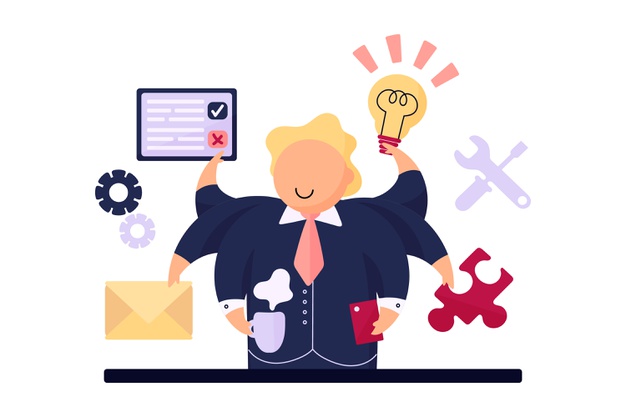The most rewarding attribute one can possess is to be a true blue professional. Imbibing the key elements in the personality helps maintain professionalism with dignity and demonstrate commitment.
The immaculate manner in which a person conducts himself or herself at the workplace shows consideration and respect for others, aptly demonstrates a high level of professionalism.
The workplace code of conduct is a form of etiquette that is linked primarily to being respectful and courteous to others. Believe it or not, professionalism and ethical behavior can benefit your career and future success. Be conscious of how you treat co-workers and clients, and ensure a positive workplace attitude to improve your productivity and effectiveness in the workplace. In addition to having the necessary skills to do your job effectively, it is equally important to develop your own high standard of work habits that could contribute to career success.
Incorporating these practices every single day at work can bring about incredible professional success.
- Workplace Code of Conduct and Expectations: Even though you will have a supervisor managing over you in your job, you will be expected to use self-management skills. Self-management means that you manage your own time and talents in order to reach your goals. In order to self-manage yourself, you need to follow the workplace code of conduct and expectations.
Think about these workplace rules and expectations tips as you follow all rules, complete your tasks and projects competently and rise up to all expectations.
- Accountability and Responsibility: It is paramount to accept personal responsibility for your actions, words and, ultimately, your performance at work. Accepting accountability means that only you can take credit for your successes and failure.
First and foremost, admit your mistakes and learn from them. Take on the projects with a sense of responsibility to take it through from conceptualizing to execution.
- Workplace Ethics: Ethics are important in everyday life, more so at your workplace. Ethics are moral principles that help you decide between right and wrong. Ethics are the unwritten rules that you refer to when figuring out how to make a good decision.
When you find yourself at the crossroads between right and wrong, your code of ethics should lead you down the right path. Your strong ethics helps you to make the right decision. Follow company policy and report anything that is inconsistent with it. Ask for help if you’re not sure how to handle a situation. Your workplace and personal ethics may differ a little bit but the right balance has to be maintained.
- Personality Ethics: First impressions are always important. When appearing for an interview, or meeting a client, your attitude, demeanor, and personality holds the key to the first impressions. It is not the best way to judge a person’s character, but it is human nature to form an opinion based on what we see in front of us.
You may not be the best-looking person, but dressing to suit the occasion is important. Maintain a high standard of personal hygiene and remember that you represent your company.
- Language: Your manner of communication and wordplay, reflect your professionalism, and intellect. Practice your everyday conversations to sound professional. The way you talk says a lot about you and your level of professionalism. The words you use to the topics you talk about lead people to form an opinion about you and can be misconstrued if not appropriate. Be clear, precise, and direct when communicating.
- Teamwork: Collaboration is the biggest step towards the execution of successful projects. You may not agree with your team members, but a consensus has to be brought for smooth functioning of processes. Keep aside the differences, and work for great teamwork, since it even outweighs performance.
- Commitment: Dedication and a positive attitude to your role and the organization can carry you a long way. Plus, dedication from employees is often contagious, inspiring others to give their best and go the extra mile.

